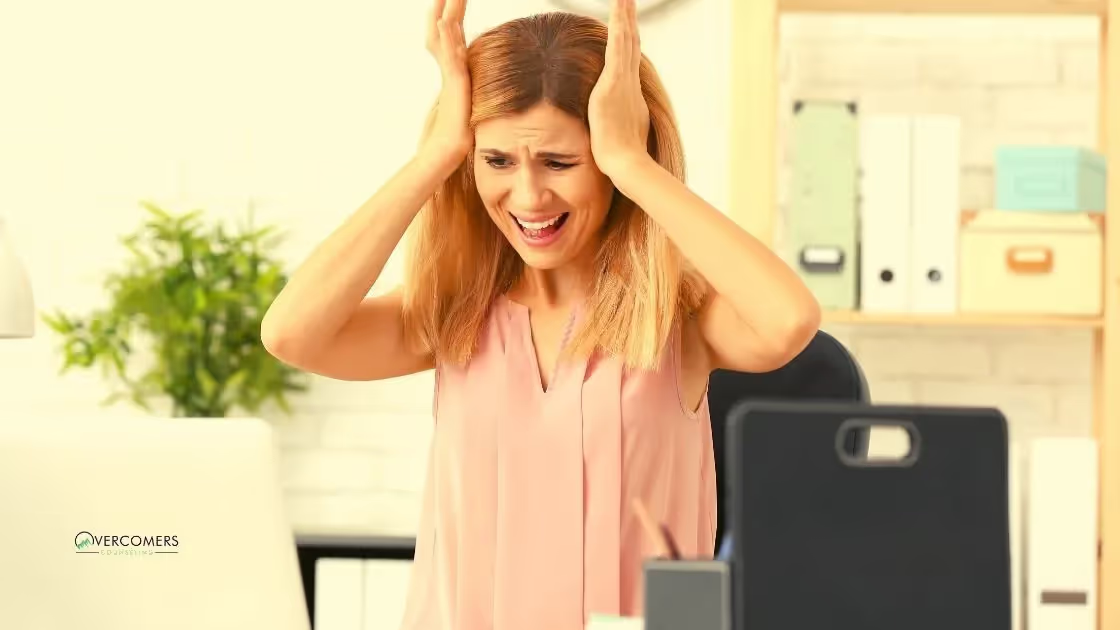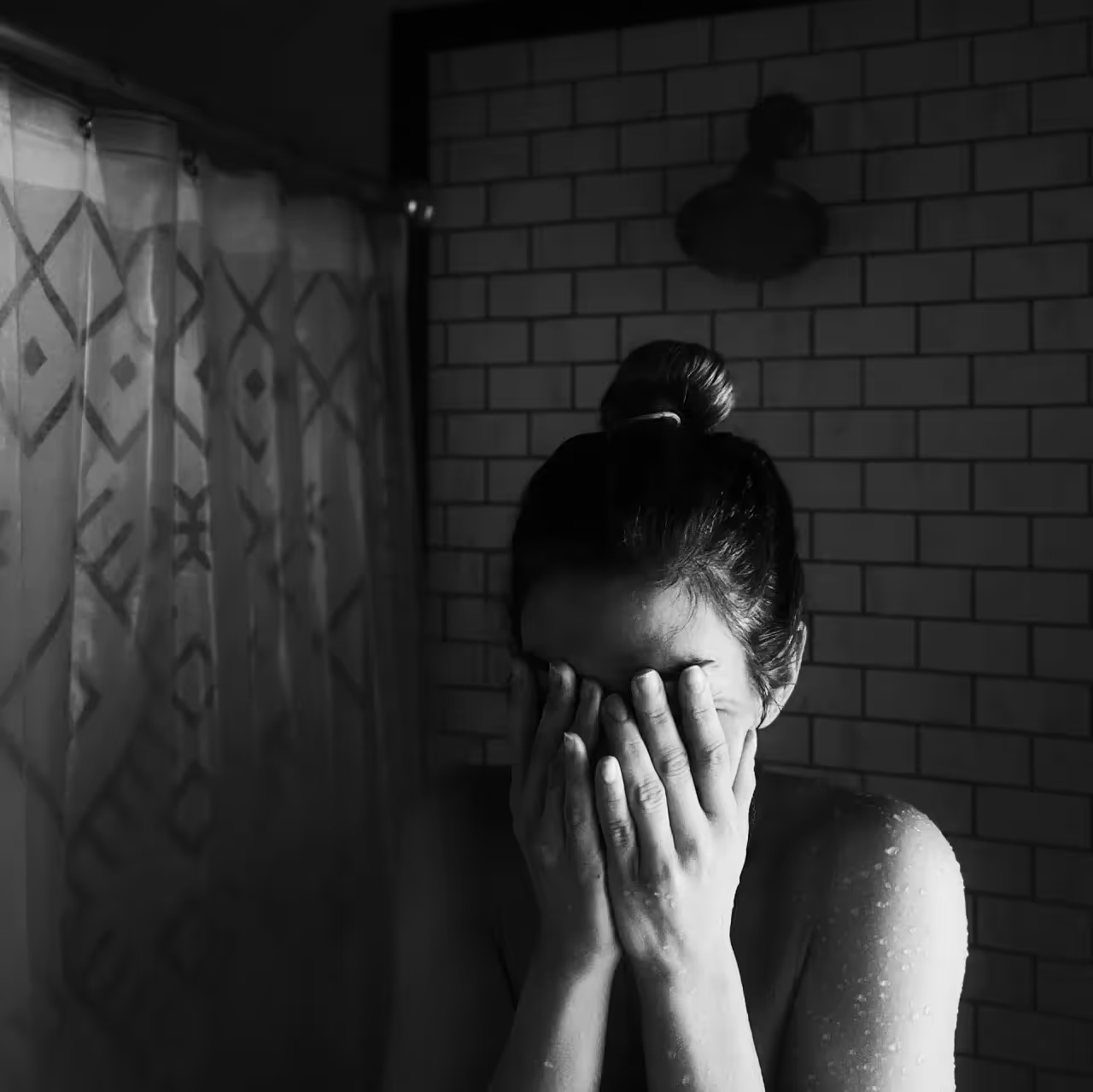Do you ask yourself questions like what are anxiety attack triggers and what could you do to avoid such triggers?Well, you're not alone.Many of us face this...

Do you ask yourself questions like what are anxiety attack triggers and what could you do to avoid such triggers?
Well, you're not alone.
Many of us face this situation from time to time.
When anxiety is severe, it can be debilitating.
The symptoms can be frightening, especially if you've never experienced them before.
When you're suffering from a severe anxiety attack, it can be difficult to walk or think clearly.
You may feel like you're losing control of your body, which can be frightening.
If you've never experienced an anxiety attack before, the physical symptoms may come as a surprise, and can often be debilitating.
To truly understand the severity of an anxiety attack and its triggers, let's first talk about what happens in the mind and body during an anxious state.
Anxiety triggers are typically associated with your personal experiences, thoughts, and fears.
Your anxiety may have developed over time due to specific negative experiences in your life.
Or you may have a general tendency towards worrying about the future.
Remember that even if you're not currently experiencing a situation triggering you, your past experiences can still cause you to feel anxious today.
Also, some things in life may be beyond your control – some factors can trigger an anxiety attack or worsen our symptoms but are outside of our immediate influence.
These include:
Panic attacks are a type of anxiety attack triggered by an intense episode of fear or stress.
A panic attack is a sudden, overwhelming episode of fear and anxiety.
They can happen anywhere, at any time.
Usually, anxiety attacks trigger result from stress or feelings of intense fear or dread.
Panic attacks often come quickly and feel like they're happening out of the blue, but most attacks have external factors that trigger them.
Symptoms of a panic attack include:
The symptoms of a panic attack and an anxiety attack may look similar, but the causes of each are different.
Panic attacks are more intense
Though the symptoms of a panic attack and an anxiety attack can look similar, they're vastly different.
The major difference between them is the intensity.
A panic attack is more intense and occurs without an obvious trigger (like stress).
Panic attacks often feel like a heart attack or other serious medical problem, which could be about to happen or already has happened.
Anxiety attacks are usually less severe and aren't usually life-threatening.
However, they may still be debilitating enough to interfere with your daily life, depending on their severity.
It's important to note that there isn't always a known cause for panic attacks; however, there is often a contextual trigger for them (like stress).
Anxiety Attack Triggers
Reactions to medications or substances in the environment can cause physical symptoms that mimic anxiety attack symptoms and increase feelings of anxiety.
If you're having symptoms of an anxiety attack that feel out of the ordinary, you may be experiencing a negative reaction to something.
One way to figure out if this is the case is by looking at your symptoms and then considering what medications or substances you've been using.
If you have any over-the-counter or prescription medications, read the list of side effects carefully.
If they match up with what you're experiencing, talk to your doctor about trying a different medication.
Flashbacks are one type of anxiety attack trigger that can cause by post-traumatic stress disorder (PTSD).
Flashbacks are a common trigger of anxiety attacks.
A flashback is a re-experiencing of the traumatic event that caused the PTSD that's causing your anxiety attacks.
It can be very intense and feel like it's happening all over again.
If you have PTSD, it can trigger flashbacks by sights, sounds, smells, or even just thinking about the traumatic event.
Learning breathing and relaxation techniques can help with coping with anxiety attack triggers or panic attacks and help stop a flashback before it starts to overwhelm you.
Other potential triggers are allergic reactions and reactions to alcohol or other substances.
An allergy can cause skin reactions like hives or swelling, difficulty breathing, chest pain, and wheezing—all of which could be mistaken for an anxiety attack.
Alcohol consumption can also make people more prone to panic attacks because it increases feelings of anxiety; when the effects wear off, the person may experience lingering feelings of unease that peak into an anxiety attack.
Caffeine is another common substance linked with mood changes and feelings of anxiousness; if you're sensitive to caffeine and consume too much in one sitting, an anxiety attack may follow suit as your body processes the amount ingested.

People who experience dissociative disorders may experience feelings of detachment from reality during certain situations.
This can trigger episodes that mimic symptoms of an anxiety attack.
You should always be on the lookout for signs of mental illness because undiagnosed or untreated mental illnesses can lead to anxiety attacks.
For example, some people who experience dissociative disorders may experience feelings of detachment from reality during certain situations.
This can trigger episodes that mimic symptoms of an anxiety attack.
You can manage dissociative disorders with medication and therapy.
Obsessive-compulsive disorder (OCD) is another type of mental health condition that may include recurring and unwanted thoughts or behaviors that result in anxiety attack triggers.
If you're not sure whether you have obsessive-compulsive disorder (OCD), ask yourself:
Phobias are intense and persistent fears about specific things or situations that you're likely to avoid to prevent experiencing an anxiety attack.
Phobias are a type of anxiety disorder.
A person with a phobia has an intense, persistent fear of certain situations or things.
When they become exposed to those anxiety attack triggers (situation or thing), their anxiety response becomes extreme and may lead to an anxiety attack.
Phobias affect nearly 40 million adults in the United States, making them one of the most common mental disorders that people experience.
If you have a phobia and are experiencing symptoms of anxiety around your trigger or triggers, you aren't alone.
While it can be hard to overcome your fear and avoid your triggers, treatments can help you learn how to manage your condition and get better over time.
Once you receive the proper treatment for your specific phobia(s), you may experience fewer symptoms around those triggers and fewer attacks overall.
Anxiety attacks have many possible causes and triggers, but you can find out about them and talk about your experience with a doctor or therapist to get help moving forward with treatment.
Anxiety attack triggers can result from many different things, including serious medical illnesses.
They may also be triggered by life changes or other situations, like the death of a loved one, a major life change, or overwhelming stress or worry.
If you think an anxiety attack might be triggered by something specific (like going to the dentist), talk to your doctor about it when you meet for an appointment.
If you're feeling overwhelmed and unable to cope with anxiety over time, talk to your doctor about getting help from a therapist.
Anxiety attacks are treatable, and some things can help relieve symptoms, like medications or other methods.
If you think you're having an anxiety attack and need emergency treatment, call 911 or go to the nearest emergency room right away.
It's important that you feel comfortable discussing personal matters with your therapist in order to open up and get more out of therapy sessions; therefore finding someone who meets certain criteria like experience level, expertise areas, and personality is key when selecting a therapist who can give meaningful feedback about how best handle issues related to anxiety or other mental health concerns.
Yes, Medicaid provides insurance coverage for therapy services specifically designed to help individuals struggling with anxiety, depression, and other mental health conditions.
Addressing anxiety is crucial because it can significantly impact your quality of life and overall well-being. Left untreated, anxiety can lead to more severe mental health issues, relationship problems, and difficulty functioning in daily life.
Other activities which have been found helpful in reducing both immediate feelings of anxiousness and long-term anxieties associated with chronic disorders include yoga, journaling, nature walks, art therapy, volunteering, and other low-stress activities. Additionally, developing a healthy lifestyle incorporating adequate sleep, physical activity, and nutritious meals can help reduce overall stress levels.
To reduce your anxiety, you can practice relaxation techniques such as deep breathing, progressive muscle relaxation, guided imagery, and mindfulness practices. Additionally, regular exercise has been found to be beneficial in managing stress and improving mental health.
Ignoring anxiety can exacerbate symptoms and make it more challenging to manage over time. This can result in a negative impact on your personal, professional, and social life, leading to feelings of isolation and even depression.